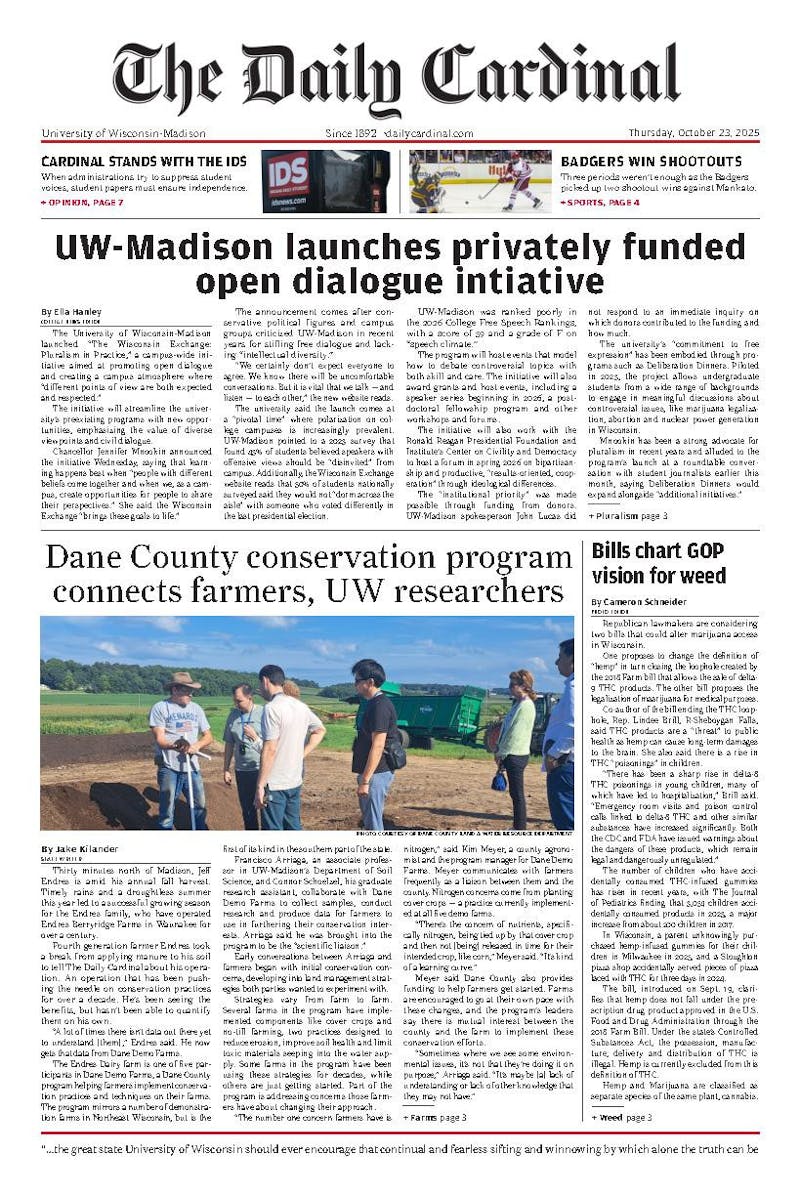A bill categorizing sexual assault against victims under the influence of alcohol as second-degree sexual assault was passed by the state Senate Tuesday. Senate Bill 526 will now be sent to the state Assembly for consideration.
Under current law, a rape perpetrator can be found guilty of second-degree sexual assault if he or she has sexual contact or intercourse with an individual under the influence of an intoxicant.
But current Wisconsin law excludes alcohol in the definition of intoxicant unless it is combined with another controlled substance or drug.
Kelly Anderson, executive director at the Rape Crisis Center of Dane County said Wisconsin is currently the only state with intoxicant statutes that allow an alcohol exception.
State Sen. Fred Risser D-Madison said '[SB 526] really just redefines the word intoxicant to mean alcoholic beverage, which a lot of people thought it meant in the first place.'
Risser said he thinks the current definition of intoxicant is not enough to protect sexual assault victims.
'The message that we're seeing with the current law is really counter to the facts,' Anderson said. 'By creating this loophole for alcohol, it really diverts attention from the fact that alcohol is the No. 1 date-rape drug.'
According to a recent nationwide study from Harvard, alcohol is a central factor in most college rapes.
According to Jill Groblewski, spokesperson for the Wisconsin Coalition Against Sexual Assault since the start of the school year, one in 20 women has been raped, and 72 percent of them were too intoxicated to give consent.
Groblewski said she is primarily concerned with perpetrators who use alcohol to facilitate a sexual assault.
'Part of the reason that we're in support of the legislation is that it would hold offenders accountable,' she said. 'If perpetrators are being held accountable, then generally trends show that more women do come forward.'
This bill is anticipated to do well in the Assembly, as it was co-authored by 30 Assembly members from both parties.
'It is not going to have a huge impact on prosecutions in raw numbers, but [will] have a huge impact in terms of sparking dialogue about what we expect of peoples sex life,' Anderson said. 'One of those things is that your partner is conscious and capable of consenting.'





